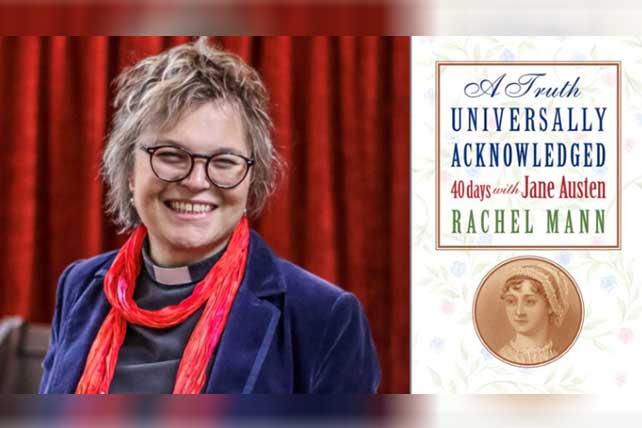(RNS) — When Archdeacon and poet Rachel Mann first read Jane Austen at age 16, she wasn’t exactly a fan.
“I absolutely hated her,” said Mann, who thought Austen’s novels were “frivolous romance stories for very, very posh people.”
But Mann stuck with the novel she was reading — “Emma” — and by the end arrived at a different conclusion.
“I discovered the real Jane, the Jane who is incisive and thoughtful, and whose wit lasered in on the weaknesses of the human condition,” she told Religion News Service in a recent call from her home in Manchester, United Kingdom.
Several decades later, as an archdeacon in the Church of England, Mann said, her appreciation for Austen has only grown. Like the Bible, Austen’s writing speaks to contemporary realities in surprising and liberating ways, she said. Mann’s latest book, “A Truth Universally Acknowledged: 40 Days With Jane Austen,” is a Lenten guide that pairs excerpts from Austen’s six novels with reflections on virtues and vices such as love, greed, humility and, of course, pride and prejudice. RNS spoke to Mann about Austen’s religious background and the lessons her novels hold for the season of penance.
This interview has been edited for length and clarity.
What makes Jane Austen’s novels fitting for a Lenten devotional?
Lent is about stripping away and getting to a deeper relationship with God. It’s not about giving things up to punish ourselves. Jane Austen is so insightful about human nature. She helps us to get behind the flimflam. She holds up a mirror to our own pretensions and falsehoods as humans. There is a particular power that I think novels have, especially if you’re a quietly moral writer like Jane Austen. We can read about characters like Lizzie Bennet and Mr. Darcy, and the novel shows how they need to grow and develop. It raises questions for us about our own pride and prejudice. Storytelling helps us inhabit these kinds of conversations in ways which are really fruitful.
What do we know about Austen’s experience of and perspective on religion?
Jane was the daughter of a Church of England vicar. She was absolutely surrounded by religion on a daily basis. For Jane, the Christian religion was as natural as breathing. My book includes selections from her prayers, and they reveal the sense in which prayer and worship were part of the warp and the weft of her life. In the late 18th century, early 19th century, in England, there was an evangelical revival. This led to waves of charismatic renewal, and this sense of the Holy Spirit moving. Jane was very suspicious of that. For her, the church was simply part of the fabric of everyday life. And that reflects her social status. In so much of England at that period, particularly the middle and upper classes, it was all about propriety. Showing enthusiasm could show you didn’t belong to the right class of person.

